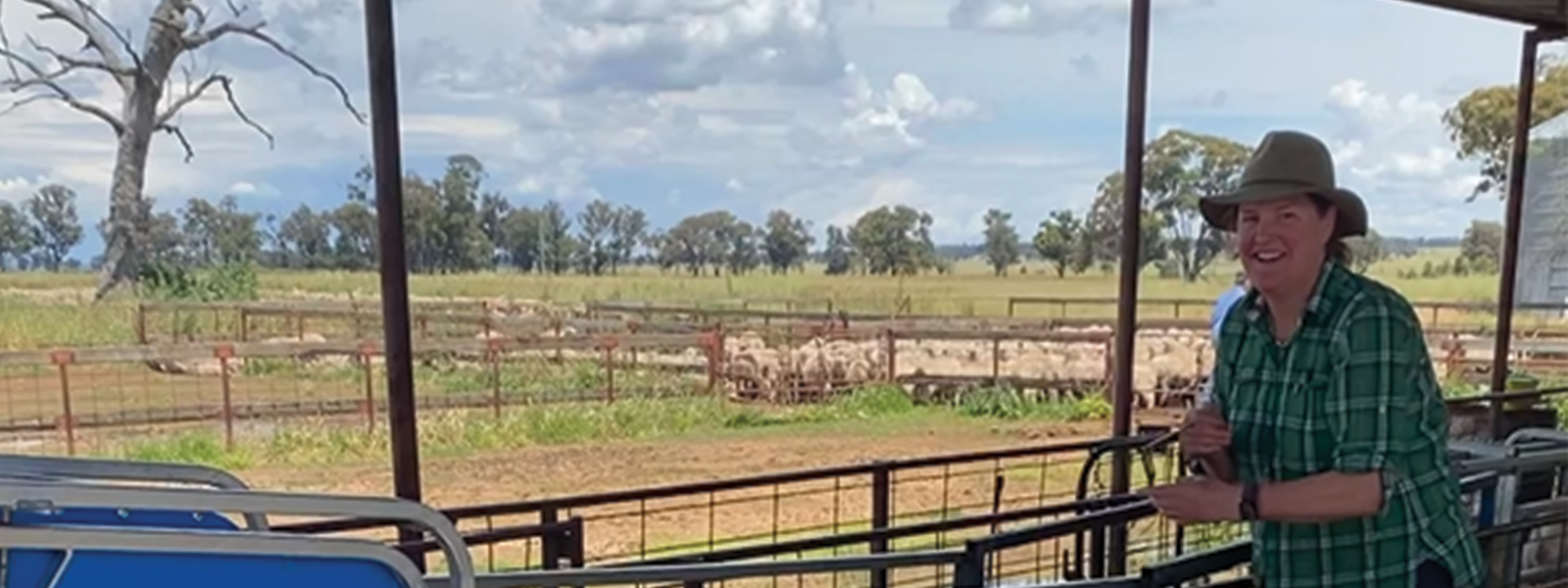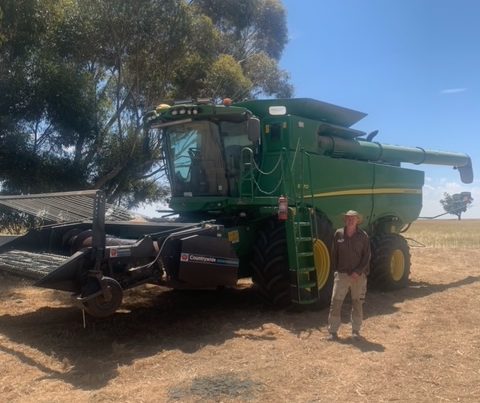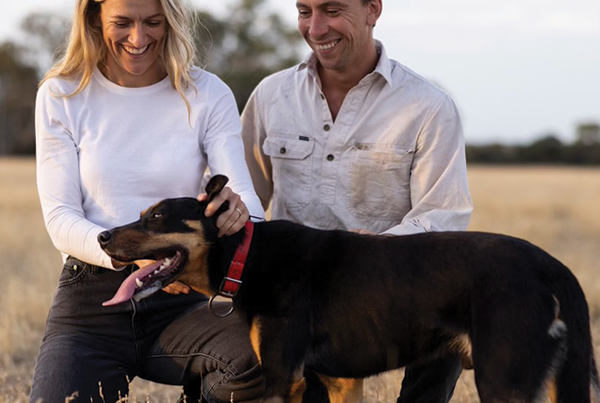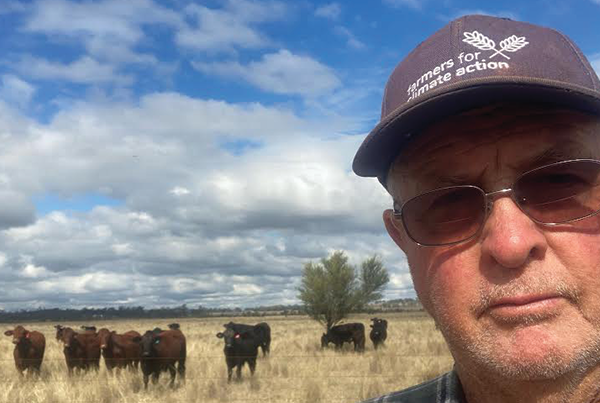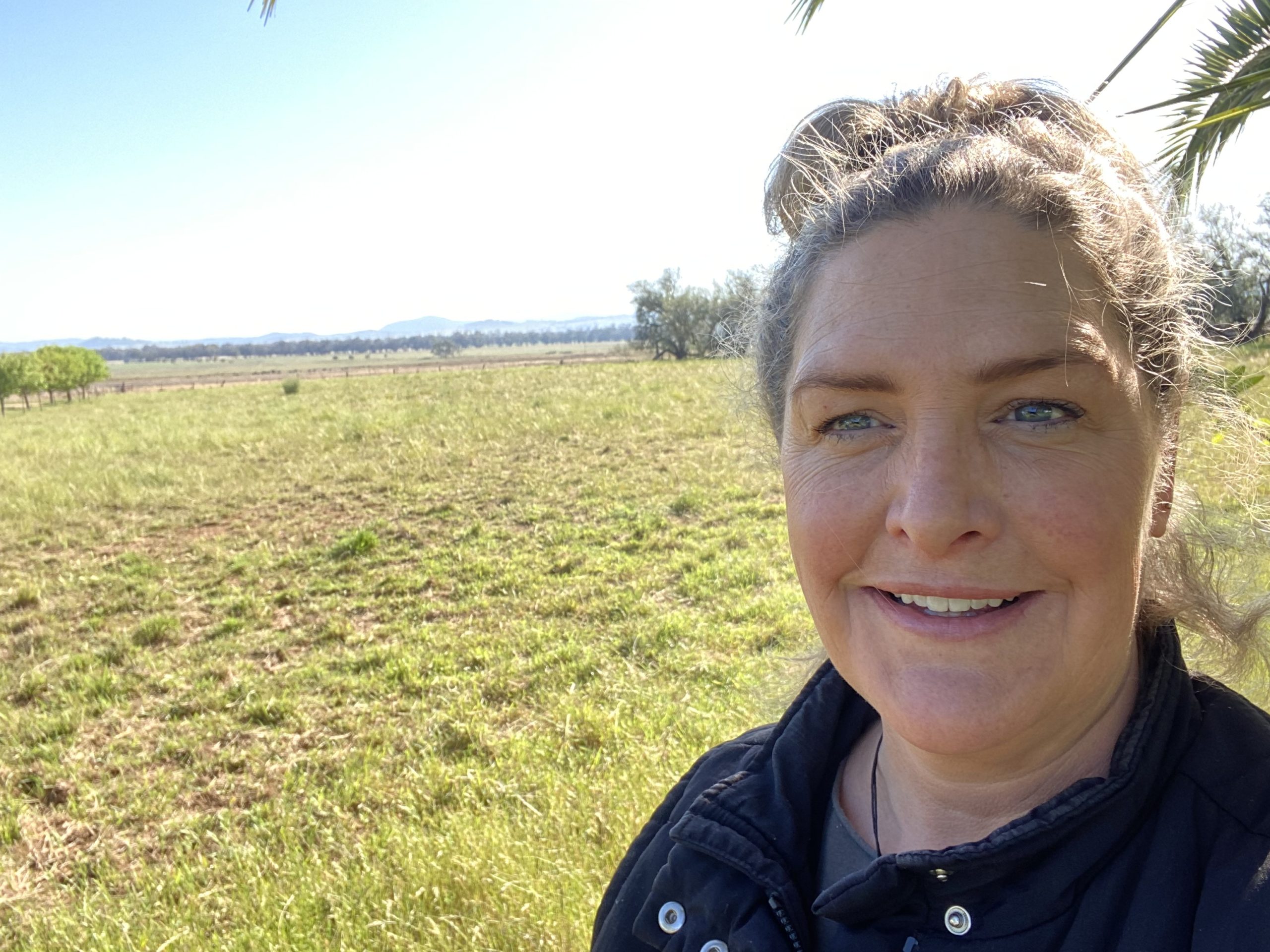
At a glance
Who: Emma and Murray Thomas, Kaloola
What: Merino and first cross lamb enterprises, opportunity agistment cattle and pasture cropping.
Where: Forbes, Central West NSW
Can you tell us about your property?
We are a mixed enterprise, running sheep for wool and meat as well as cropping. We have properties in the triangle between Gooloogong, Forbes and Grenfell, starting near the Lachlan River and heading south to the Warraderry Ranges.
What first got you thinking about climate change
Our journey to being sustainable came as a result of the drought that started in 2002, the massive dust storms that buried fences and blew over Sydney was a sobering and eye-opening time. We took action and educated ourselves in holistic management and rotational grazing, which we have been implementing ever since reducing numbers in dry times and expanding operations when the opportunity presents itself. This has allowed us to improve soil health and maintain biodiversity above and below the ground.
How has climate change impacted on your business
We have experienced many droughts and floods over the twenty years, but nothing compares to the last drought followed by the recent floods, where we saw water reach areas we had not seen before, these type of events are getting more extreme.
What are some of the climate-smart strategies you’ve been employing and how successful have they been?
Pasture cropping to maintain native grasses in our systems which are active in summer when summer rainfall.
If you could send a message about climate change to the Federal Government (in 50 words of less) what would it be?
The time to act is now, a window of opportunity exists to take action now, providing a future for coming generations.
Strong policy leadership is needed to embed policies that reduce the nations climate footprint. Agriculture has a part to play in this through reducing emissions, sequestering carbon and enhancing biodiversity.
National policy needs to ensure reduction of carbon emissions and provision of ecosystem services, which lead to climate neutral outcomes.

